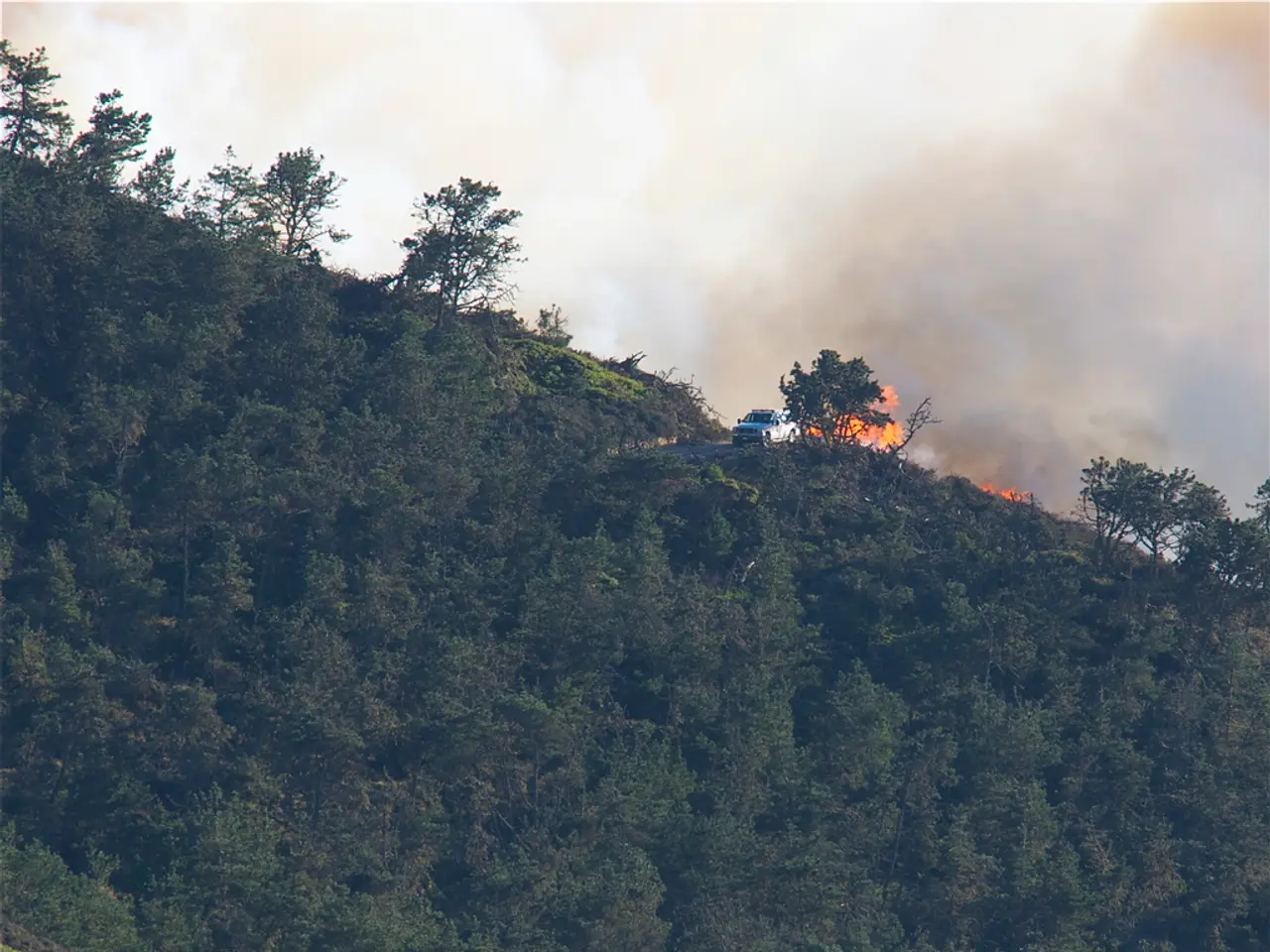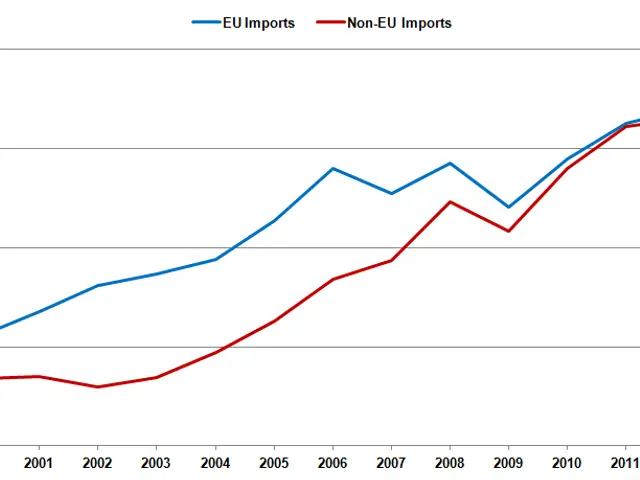Raging Wildfire in Greece Claims More Lives, Causing a Heart-Wrenching Crisis
Wildfires Continue to Ravage Greece
A series of wildfires, fueled by high winds and hot weather, has been ravaging various parts of Greece since Friday. The most severe outbreak occurred in Keratea, a small town southwest of Athens, where the fire spread rapidly and engulfed houses.
The Greek National Meteorological Service has issued a red alert for high fire risk across much of the mainland and islands. The wind patterns known as 'meltemi' are driving the fires and pose a significant threat in the coming days.
Despite the efforts of fire crews, the fire in Keratea was contained but not extinguished by dawn on Saturday. Water-bombing aircraft and helicopters were used to douse hotspots and prevent flare-ups.
Evacuation orders remain in place across several regions due to the threat of powerful winds whipping through parts of Attica and the Peloponnese. Villages near the historic site of Ancient Olympia were evacuated on Friday evening as flames advanced on the surrounding pine forests. Locals in the Athens suburbs are evacuating at-risk districts, loading cars with possessions and heading for safer ground due to the wildfire threat.
Early estimates suggest that dozens of homes and several thousand hectares of farmland have been destroyed since Friday morning, with severe economic losses expected for farmers, particularly in olive-growing regions. An elderly man was found dead inside a charred building in Keratea, marking the first confirmed fatality of this latest wave of summer blazes.
Many Greeks view the current wildfires as a familiar battle, with the images of burning hillsides and ash-filled skies being all too reminiscent of the 2018 wildfire in the coastal resort of Mati. The Greek government held an emergency cabinet meeting on Friday to assess the scale of the wildfire crisis in Greece.
Critics argue that Greece's wildfire response measures are reactive, not preventive, and that more resources should be dedicated to clearing overgrown vegetation and enforcing stricter building codes in high-risk zones. The mayor of a small town in the Peloponnese stated that preparation should happen in winter, not in July.
Residents are urged to avoid outdoor activities that might create sparks, such as barbecuing or using power tools. Fire crews are braced for flare-ups and communities are being told to stay vigilant and ready to evacuate at short notice. Public awareness of the threat has grown, but there is a sense that climate change is making such tragedies harder to prevent.
Keratea, a town that experienced severe outbreaks, is currently breathing easier but the smoke on the horizon is a reminder that the danger is never truly gone during Greece's long, dry summers.
Read also:
- Russia, according to Zelensky, lacks the prowess for launching another significant offensive.
- Russia's Latest Peace Proposals for Donbas: New Diplomatic Landscape Emerges amid Alaska Summit, Potentially Opening Ceasefire Opportunities
- Amidst India's escalating climate crisis, transgender individuals continue to persevere
- Contentious Discussion Surrounding the Movie Release of "Planet of the Humans"








